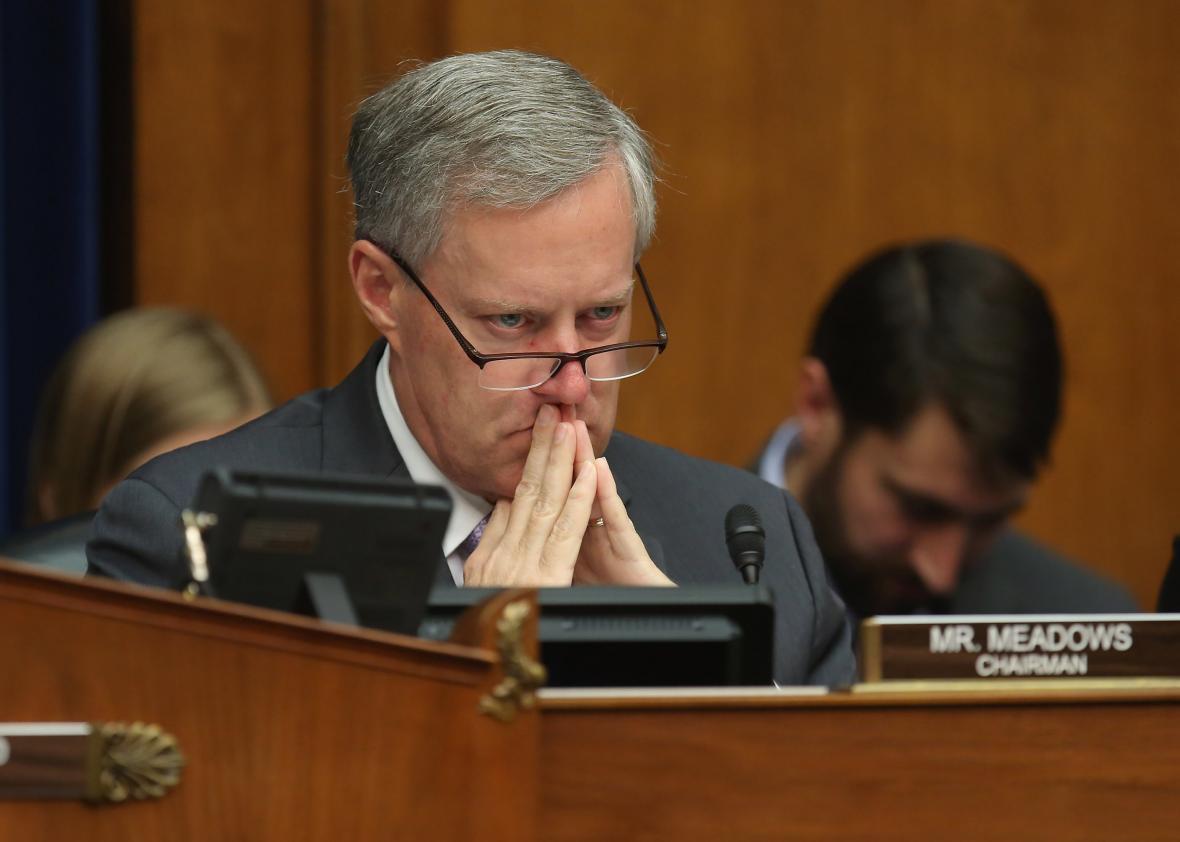Late last week, a draft version of the House GOP’s evolving Obamacare replacement leaked to the media, offering the most detailed peek yet at what Republicans might have in mind for health reform. But those still young, painstakingly laid plans already look like they might be in trouble, as North Carolina Rep. Mark Meadows, who chairs the powerful and hard-line House Freedom Caucus, has told CNN that he’d vote against the legislation were it to hit the floor of Congress tomorrow.
Meadows says he is concerned about the refundable tax credits the bill would offer to help Americans pay for insurance on the individual market. Unlike Obamacare’s tax credits, which are only available to Americans who earn less than 400 percent of the poverty line and are more generous for lower-income families, the GOP’s subsidies would be available to all Americans who lack employer-based coverage and would rise with age. Those younger than 30 would be eligible for $2,000 of assistance while those 60 and older would be eligible for $4,000. Meadows considers this system a nonstarter; ditto the taxes needed to pay for it.
“What is conservative about a new entitlement program and a new tax increase? And should that be the first thing that the president signs of significance, that we sent to the new president?” Meadows told CNN. “A new Republican president signs a new entitlement and a new tax increase as his first major piece of legislation? I don’t know how you support that—do you?”
Interestingly, Meadows echoes some progressive complaints about the GOP’s draft bill—namely, that it would benefit rich, older Americans more than the needy.
“So the headline is that the GOP is reducing subsidies to needy individuals when in fact, the growth of the taxpayer-subsidized reimbursements will actually increase. The total dollars that we spend on subsidies will be far greater,” he said. “So you can be a millionaire and not have employer-based health care and you’re going to get a check from the federal government—I’ve got a problem with that.”
Meadows isn’t the only Freedom Caucus member to express skepticism about the bill that’s now circulating—Ohio Rep. Jim Jordan also has qualms, according to CNN, while Florida’s Ted Yoho previously objected to some of its features. A primary concern seems to be that the tax credits are refundable, meaning that if they’re worth more than an American owes in taxes, that person gets the difference back in cash (or, in this specific case, in payments toward their health insurance premiums). In the eyes of the Freedom Caucus, that makes them an entitlement rather than a tax break—and they’re not really wrong. Refundability is really just a not-so-subtle way to hide government benefits in the tax code. The fact that far-right conservatives are wising up to that bodes poorly for the legislation’s chances, given the Freedom Caucus’ sway in the House.
All of this once again raises the question of whether any health reform proposal could placate enough Republicans to pass Congress. A plan lacking refundable tax credits would be of minimal help to lower-income families, who would be especially in danger of losing their insurance once Obamacare’s Medicaid expansion was rolled back. With relatively moderate Republicans in the Senate (emphasis on relatively) already squeamish about the possibility of throwing millions of Americans from their coverage, it’s hard to see how such a bare-bones plan like what the Freedom Caucus has in mind could get traction there—much less attract the Democratic votes necessary to overcome a filibuster and fully replace the ACA.
The Republican plan is still in its early stages, so perhaps there’s still quietly room for some kind of compromise. And in the end, Senate Majority Leader Mitch McConnell and House Speaker Paul Ryan are reportedly betting that hardliners and moderates alike won’t risk their necks by blocking a repeal-and-replace bill that the majority of their GOP colleagues support. But it seems equally plausible at this point that we’ll discover that Republican health-care reform is just the oxymoron that so many suspect.
